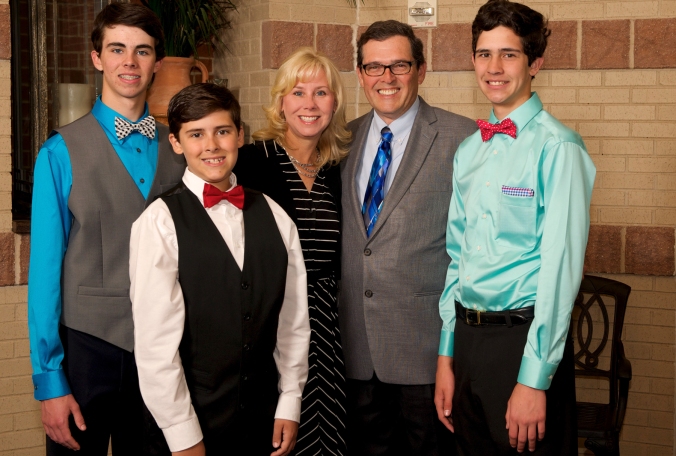^^The Alvey family from left to right–Nick (11th grade), Nathan (6th grade), Carolyn, David, and Sam (9th grade) ^^Nick and Sam on their devices as David and Carolyn wrote this post.
^^Nick and Sam on their devices as David and Carolyn wrote this post.
We love social media. We use FaceBook, Twitter, Instagram, YouTube, Linked-In, etc. to keep up with friends, family and business associates all over the world.
We also use social media in our business to connect with editors, reporters and media personalities. We use it to track trends and promote our clients and special events.
We even use it to check out job applicants. You’d be amazed how revealing pictures and posts can be or how far back we can search them. Colleges also use them to evaluate candidates for admission or scholarship opportunities. A student’s social media presence can greatly help or hinder that process.
Every year, parents are allowing kids at younger and younger ages to access technology and social media. We are torn between allowing our kids to engage in social media or feel left out among their peers. The Heights Student Ministry even connects with students via Twitter and Instagram.
We challenge THSM parents to consider all the ramifications of social media and to help your students make wise decisions. Don’t just follow the trend. Prepare your kids for the responsibility of having a social media account.
Age and maturity are huge considerations when deciding when one of our kids is ready to enter the social media world. Facebook’s policy is for members to be at least 13 years old, which is a boundary parents should adhere to.
We don’t consider any social media outlet until our sons have turned 14. It’s not a popular perspective for 7th and 8th graders. However, we’ve been spared major drama as a result of this policy. Most kids at 12 and 13 years old are just not mature enough the handle situations that occur on social media. It is heartbreaking to listen to our younger students cry because they are being bullied, teased, or worse.
Once a child enters the social media world, it’s important that parents “follow” the student and check up on them regularly. If you’re not on social media, ask friends or family to serve in that role.
You want to know what your child is posting, and you also want to keep up with what their friends and followers are posting. We often check the tweet, photos and messages posted by our sons’ friends. Why? We are a community. We need to take care of each other and be held accountable for our actions. If you become aware of someone bullying another student, it is your obligation to step in as an adult to address the situation.
Social media can be fun and it connects us as a community. Last summer, we enjoyed all the ice bucket challenges to bring more awareness to ALS. We love keeping up with all the birthdays, weddings, baby showers, sporting events, school activities, and THSM happenings. One of our favorite times of the year is Chi Alpha. Watching all the students’ Tweets and Instagram photos is social media at its best.
Social media itself is not evil. Certainly, there are those that want to use it with that intent, but we use it as a mission field. Teaching our kids the good and the bad isn’t one conversation, but rather an ongoing dialogue.
Share age appropriate stories you read or hear about at the dinner table. Talk to your kids about something positive you saw on their friends’ posts. Use opportunities to teach them when you see abuses online.
Here are a few tips to share with your students-
- Don’t post anything you wouldn’t share with your grandmother or that you don’t want to explain in a future job interview.
- If you’re really upset about something posted on social media, wait before responding. This will test your maturity. Remember, your response could be online for a very long time.
- Keep “Location Services” turned off for your camera so predators can’t see where you live, go to school/work, etc.
- Turn your electronic device off every evening so it reboots and is fresh the next morning. You will also get much better rest without annoying notices and late-night texts.
- Ask a friend or family member to be your accountability partner. Give them your passwords so they can check up on you. Just knowing someone could review your history at any time might be enough to save you from temptation.
- Double-check your “Privacy” or “Security” settings every 6 months. They can change without notice.
- Ask yourself, “What Would Jesus Post?” If we profess to be Christians (Christ-like) then people are judging Jesus by every picture we post, tweet we tweet (or retweet), and every link we share.
Social media can be fun and engaging. But like all social situations, it can either reflect positively or negatively on our Christian testimony. Let’s use our platform to draw people closer to God.
This post was written by David and Carolyn Alvey, parents to Nick (11th grade), Sam (9th grade), and Nathan (6th grade). The Alveys work at Aardvark Communications and are extremely active leaders at The Heights, especially in the student ministry.
